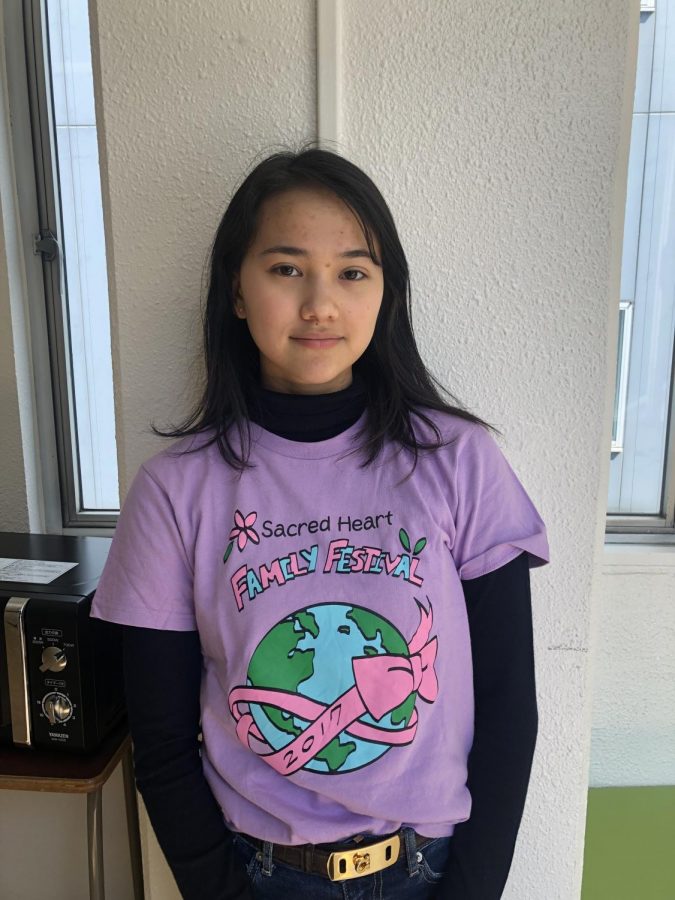What is a “third culture kid”?
March 21, 2019
As an international school student, I often question my identity and know a lot of my classmates and friends who do too. Personally, I don’t think that I belong to a particular culture or society and instead have been brought up with a mix of customs and lifestyles. Recently, an article on Facebook helped me find a label for who I am: a TCK.
According to American Sociologist, David C. Pollock, “a Third Culture Kid (TCK) is a person who has spent a significant part of his or her developmental years outside the parents’ culture. The TCK frequently builds relationships to all of the cultures, while not having full ownership in any. Although elements from each culture may be assimilated into the TCK’s life experience, the sense of belonging is in relationship to others of similar background.”
Although “TCK” or “Third Culture Kid” is just a term, it can empower people that relate to it and provide a sense of belonging and identity.
To get a better understanding of what a TCK is and if people can actually relate to the term, I’ve interviewed four students from Sacred Heart to ask them about life as a TCK.
What is your nationality?
Eka: Russian.
Marita: I’m Greek.
Mishaka: I’m from Nepal.
Erika: I’m half Italian and half Japanese.
How long have you been living in Japan?
Eka: 16 years.
Marita: This is my fourth year living in Tokyo.
Mishaka: 10 years.
Erika: I was born here [Tokyo], and have lived here all my life.
Would you identify as a TCK?
Erika: Yes.
Eka: I didn’t at first, but after learning about what it is, I do now.
Marita: Yes.
Mishaka: Yes.
How did you get used to leaving the country you were in and starting anew?
Marita: It was hard. I wasn’t prepared. I never lived outside of Greece before, it was really different for me the whole experience, but once I adjusted into my new life in Japan, I realized how important it is to go out of your home country and explore other cultures.
Mishaka: It was very complicated at first because I kept moving back to back between Japan and Nepal; thus, I could notice a lot of cultural differences between these two countries. Some manners considered polite in Japan would be considered pretty odd in Nepal and many behaviors I got used to in Nepal were considered rude in Japan. However, since 5th grade, I started living in Japan long-term; therefore, I started to understand my environment better every day and went along with it.
Erika: Although I’ve never lived outside of Japan, I often travel to Italy to see my Italian side of the family. Because of this, I’ve never felt that I 100% belonged to or resonated with Italian or Japanese culture, and have always been confused about my identity.
Did you have any trouble making or maintaining friends as a TCK?
Eka: Yes, I did have trouble especially with maintaining friends. I’ve gone to an international school for most of my school life, and it really is hard to see some of my friends leave due to their parents’ jobs. I’ve also lived in Australia and Hawaii for a while and have also found it hard to leave my friends there when I came back to Japan.
Erika: No. But I think that this is because I’ve always attended an international school where there are many people from different cultures, many of whom are TCK’s.
Mishaka: I didn’t have trouble making friends, but it was hard maintaining friends while I kept moving between Japan and Nepal.
Have you ever felt that you’ve missed out on certain aspects of your parents’ culture?
Erika: Yes. Because I am multicultural, whether I go to Italy or Japan, I feel like a foreigner and am often thought of as a foreigner. I’m also not as fluent in Japanese nor Italian as a native speaker would be which makes it harder for me to relate to my cousins and friends that are 100% Japanese or 100% Italian.
Eka: Not necessarily, I visit Russia almost every year, and I keep in contact with my cousins, so I feel like I don’t really miss out on anything. However, I sometimes find it difficult to relate to my Russian friends because I don’t always get the new “slang” or casual jokes.
Mishaka: Yes, I have missed certain aspects such as extreme traditional values other Nepalese kids grow up with and a few festivals that highlight the pride of Nepal.
Do you think you’ve gained anything or something out of the way you’ve brought up?
Marita: I think that kids that leave their home country at a young age, whether their like 10 or 16 years old, it doesn’t matter, but before you become an adult, if you explore outside of your country, I believe that you become more open-minded and you are a lot more aware of how other people behave. You’re just prepared for anything that comes your way.
Eka: Yes, I think that I am very fortunate to have been brought up surrounded by people my age that come from different backgrounds.
Erika: Yes. I think that I’ve become more open-minded, and have learned to see things from many different perspectives.
How do you think you’re different from a child that’s lived in their “home culture” their whole life?
Erika: Yes. I think that I am able to adapt to different environments easily, and am better at understanding different cultures.
Mishaka: I think I am different because of my acceptingness towards other people and the ability to learn something very quickly.
Eka: I think that I am more open-minded and willing to try new things. Traveling a lot has also helped me understand the world better by experiencing different cultures.
Marita: I think I’m more accepting and more understanding in a way. I don’t think it necessarily has to do with maturity, but you’re just open to more ideas and look at situations differently compared to a kid that’s only experienced living in their home country. So overall, I think that I am very lucky to have moved to Japan.














































